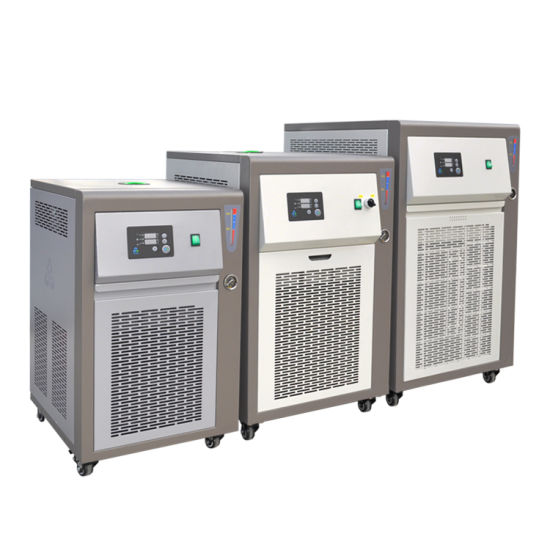Lab chiller Applications:
Lab chiller comes in different sizes and cooling capacities to accommodate various types of equipment and experiments. They are commonly used in chemistry, biology, pharmaceuticals, and other scientific disciplines that require precise temperature control.
Cooling analytical instrumentation:
Lab chillers are often used to cool instruments such as gas chromatographs, high-performance liquid chromatographs, mass spectrometers, and other sensitive analytical equipment.
Cooling lasers:
Lasers generate a significant amount of heat. It can affect their performance and accuracy. Lab chillers are used to maintain a constant temperature in laser systems.
Cooling chemical reactors:
Many chemical reactions generate heat, and lab chillers are used to control the temperature of chemical reactors and prevent overheating.
Cooling biological samples:
Some biological samples, such as tissue samples or cell cultures, need to be maintained at a specific temperature to remain viable. Lab chillers are used to cool incubators, refrigerators, and other equipment used to store or grow biological samples.
Here are some applications of lab chillers, as following;
Cooling heat exchangers:
Heat exchangers are used to transfer heat between different fluids or gases. Lab chillers are used to maintain a specific temperature for the cooling fluid in the heat exchanger.
Cooling water baths:
Lab chillers can be used to cool water baths used in experiments that require a specific temperature range.
Cooling MRI machines:
Magnetic Resonance Imaging (MRI) machines generate heat that can affect the quality of the images produced. Lab chillers are used to maintain a consistent temperature in MRI machines, ensuring high-quality imaging.
Components of Lab Chiller
The chiller unit includes various components, such as a compressor, condenser, evaporator, expansion valve, and temperature controller. It used to regulate the temperature of the coolant and ensure precise temperature control of the equipment or experiment being cooled.

